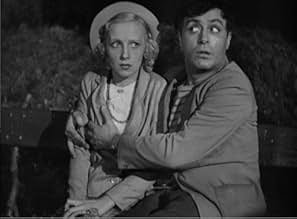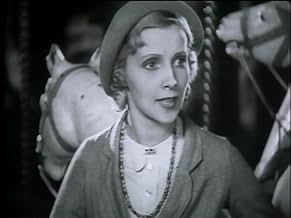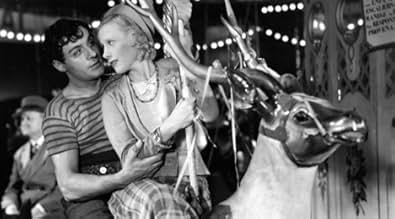"Liliom" is the only film Fritz Lang made in France, after he fled Nazi Germany and before moving to the States, and he brings all his skill and heart and humor to the wonderful Ferenc Molnar story. It must be seen-- a review of it can only give pale glimpses, such as these two lovely moments, one cinematic, one almost poetic:
First, a lap dissolve to indicate, as that technique so often does, the passage of time. It begins with the principals' names carved in wood "Julie Liliom"-- then that dissolves to new names carved over those "Andre et Daniele"-- and that in turn dissolves to "Mado Jean." Lovers fading into the background as time passes. Foreshadowing doesn't get sweeter or sadder than that.
Second, when Liliom is asked his surname, he replies, "Zadowski, like my mother." It is the only indication that he is illegitimate, and that sad fact is all the more poignant for being so understated.
As I watched I kept wondering what latter-day feminists might think of this film, because Liliom slaps Julie often enough to be accused of wife-beating. But of Liliom's character, Julie says, "Bad boy. Brute. Darling." She loves him, and knows he would never really harm her. The final moments of the film deliver its message-- love people for who they are, for better or worse, you won't change their character, and even brutes have hearts and can be worthy of love.
But I save my final remark for Charles Boyer. I've always enjoyed his work, but I was not prepared for a performance of this skill and range. He is alternately charming or savage, cocky or rueful. And he gives a gorgeously physical performance-- in a class with Toshiro Mifune as Sanjuro, or Yul Brynner as the King of Siam. He is always in motion, and when he sits with Julie on a park bench for the first time, seducing her, brushing her breasts with his hands, he seduces the whole audience. Well, me anyway.


















